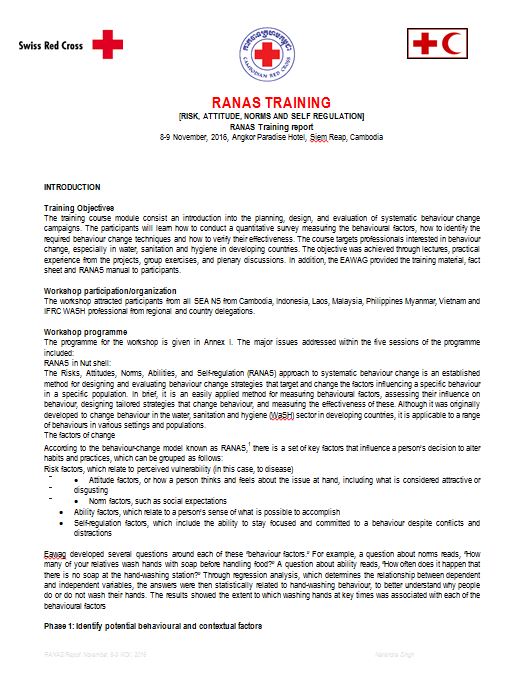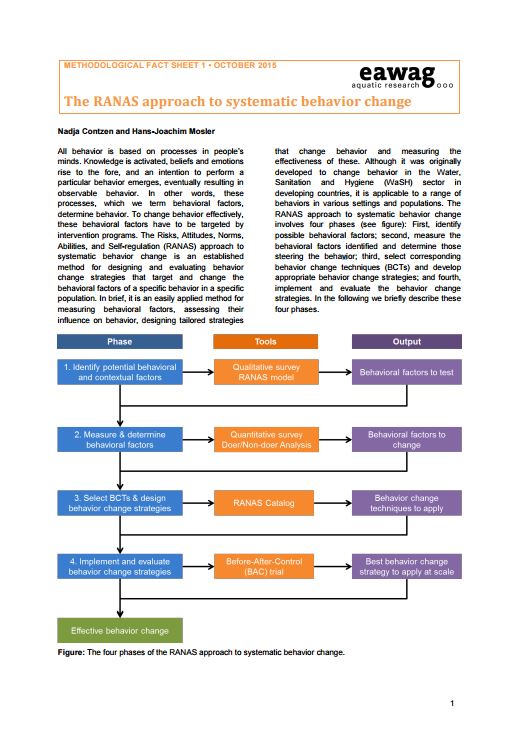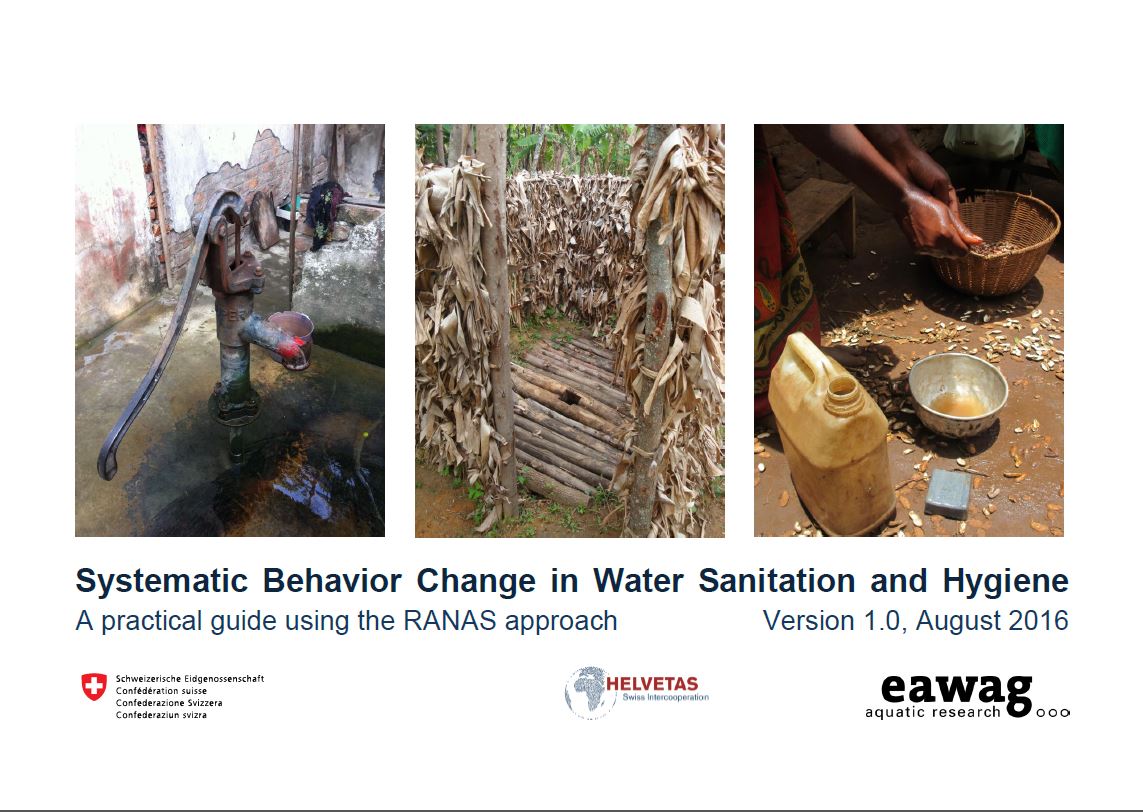Risks, Attitude, Norms, Abilities and Self Regulation (RANAS) training was conducted in Siem Reap, Cambodia, on 8-9 November 2016, by Swiss Red Cross, IFRC and Cambodian Red Cross.
The 2-day workshop was participated by water, sanitation and hygiene (WASH) practitioners from Southeast Asian National Societies of Cambodia, Indonesia, Laos, Malaysia, Myanmar, Viet Nam, Philippines and IFRC.
The training course module consists of an introduction into the planning, design, and evaluation of systematic behaviour change campaigns.
The participants learned about how to conduct a quantitative survey measuring the behavioural factors, how to identify the required behaviour change techniques and how to verify their effectiveness. The course targets practitioners interested in behaviour change, especially in water, sanitation and hygiene in developing countries. The objective was achieved through lectures, practical experience from the projects, group exercises, and plenary discussions.
The Risks, Attitudes, Norms, Abilities, and Self-regulation (RANAS) approach to systematic behaviour change is an established method for designing and evaluating behaviour change strategies that target and change the factors influencing a specific behaviour in a specific population. In brief, it is an easily applied method for measuring behavioural factors, assessing their influence on behaviour, designing tailored strategies that change behaviour, and measuring the effectiveness of these. Although it was originally developed to change behaviour in the water, sanitation and hygiene (WaSH) sector in developing countries, it is applicable to a range of behaviours in various settings and populations.
Training documents:
- Systematic Behavior Change in Water Sanitation and Hygiene – A practical guide using the RANAS (Risk, Attitude, Norms and Self Regulation) approach.
- Methodological Fact Sheets – RANAS (Risks, Attitudes, Norms, Abilities and Self Regulation) approach to systematic behavior change
- For more information, refer to this external link.
Outcome document:
![]()




